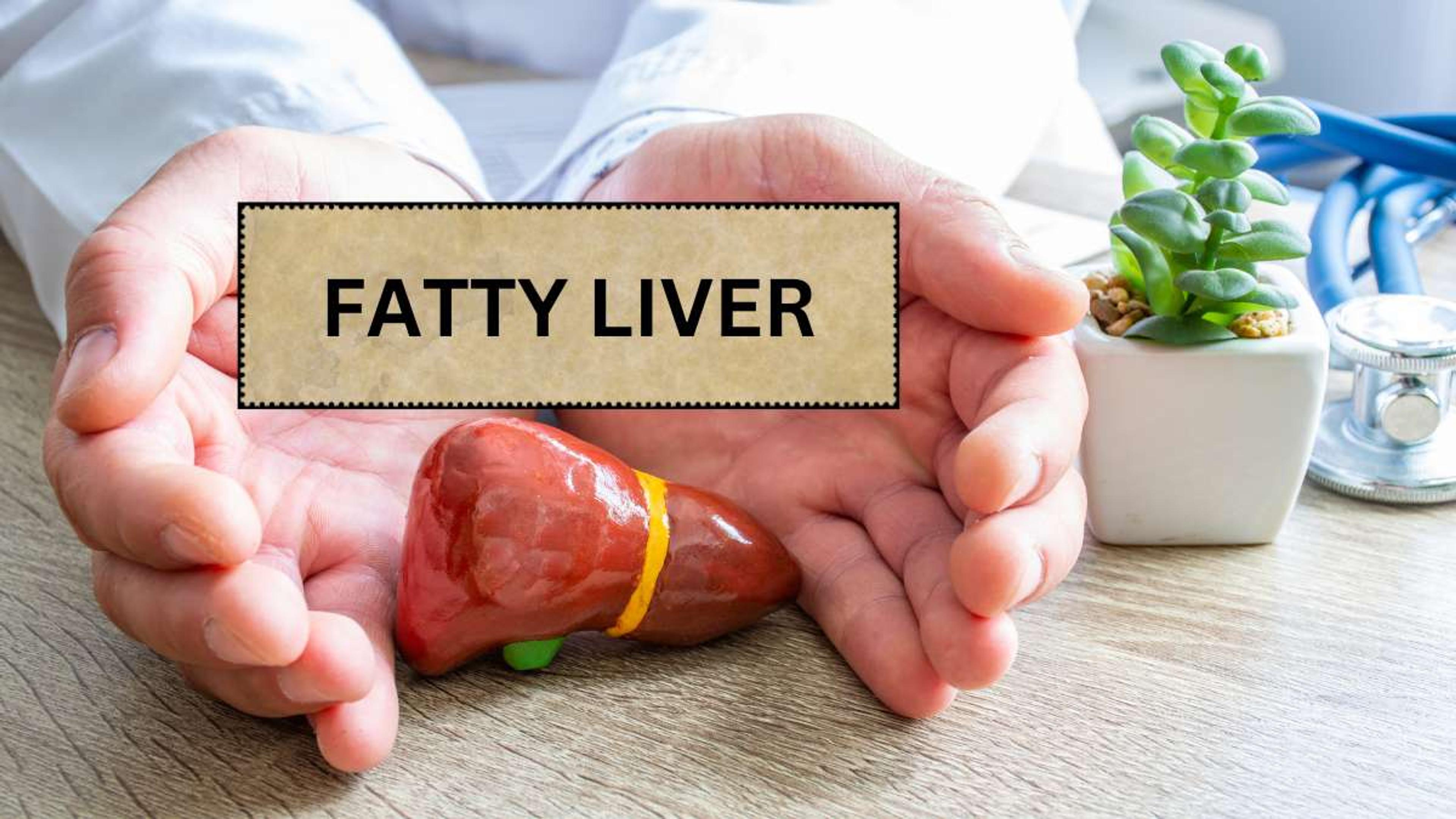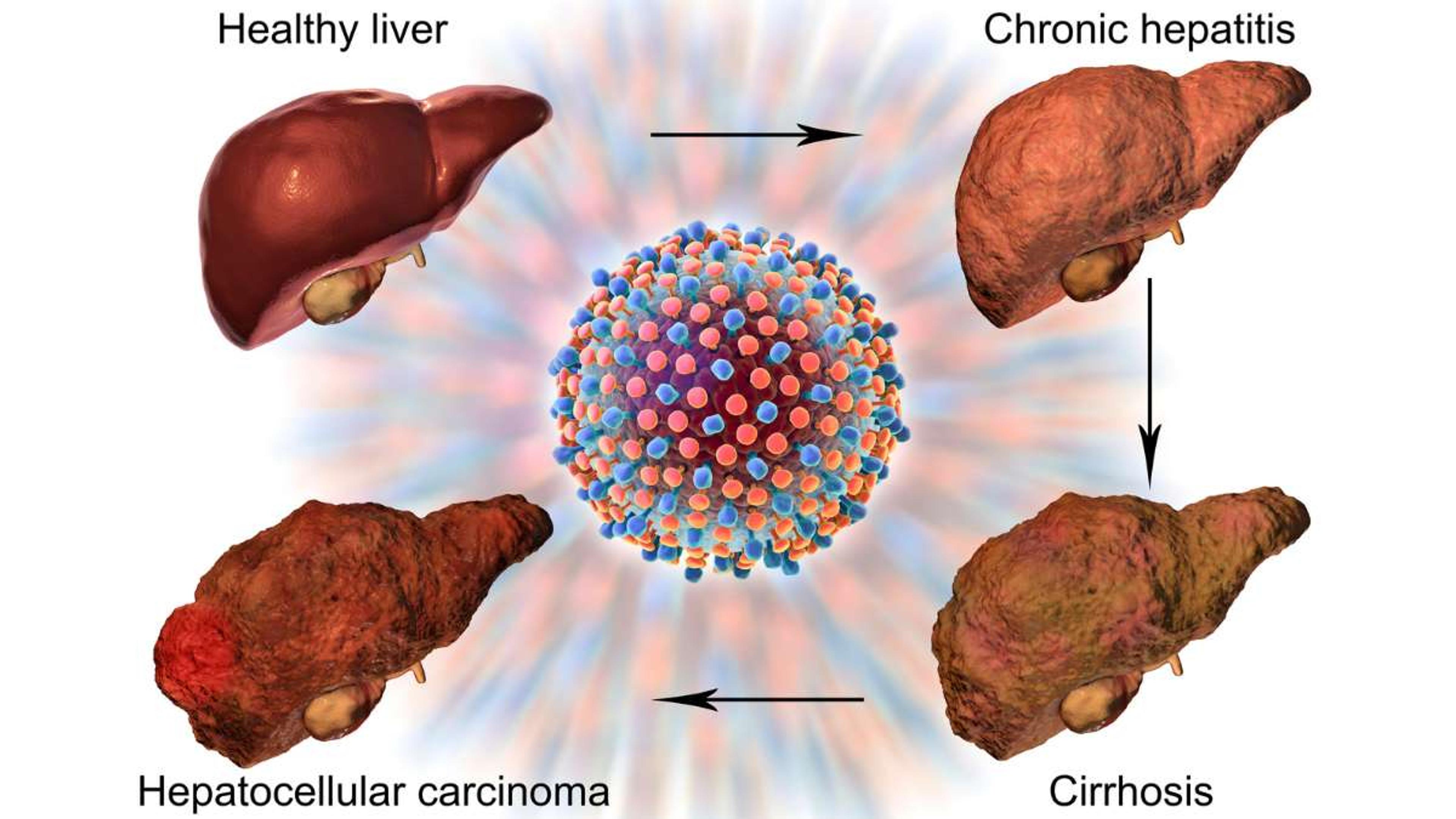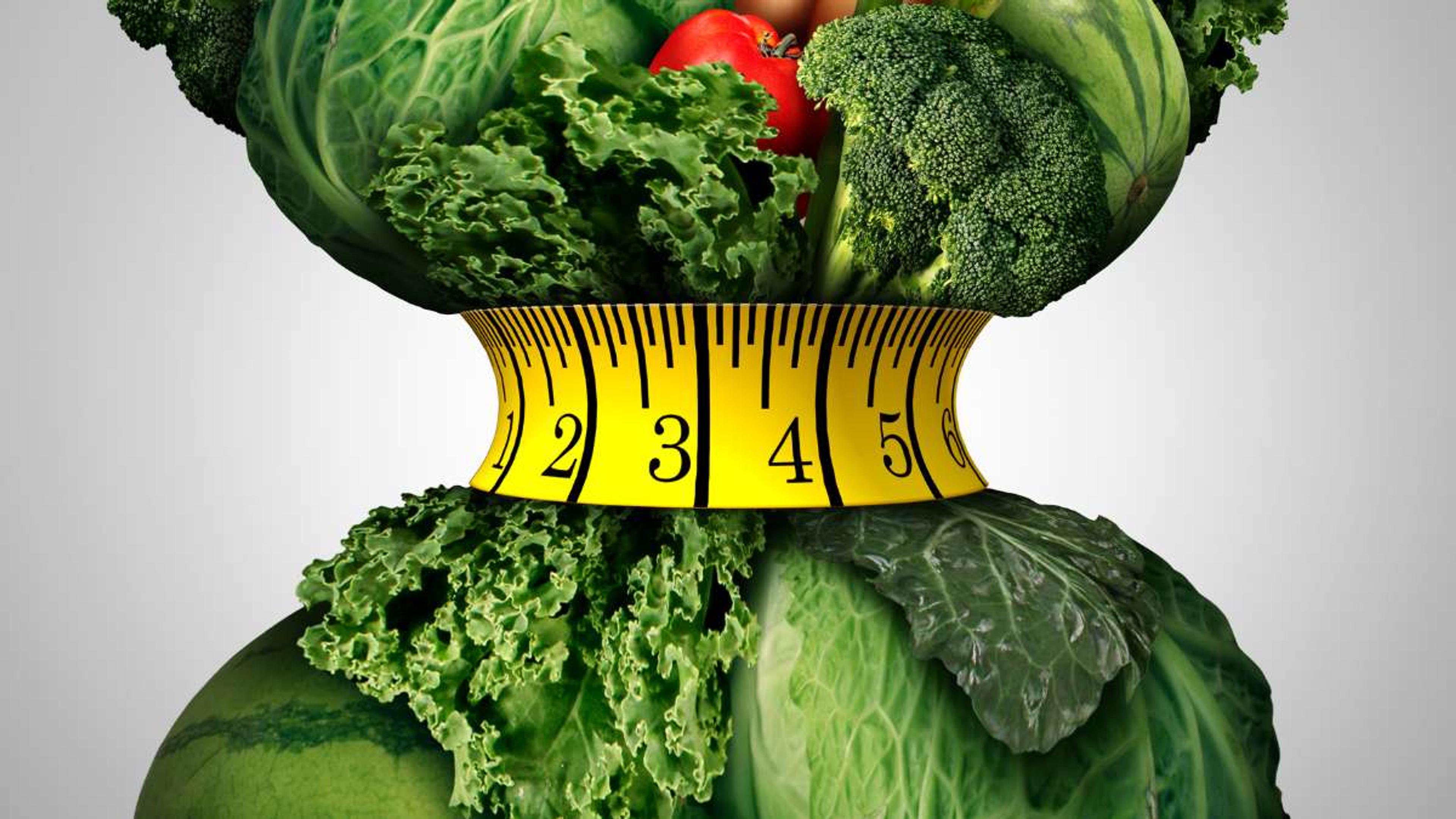Vegan Diet for Fatty Liver: A Complete Guide

- Key Takeaways
- Understanding Fatty Liver Disease
- Benefits of a Vegan Diet for Fatty Liver
- Nutritional Considerations
- Foods to Avoid with Fatty Liver Disease
- Research on Vegan Diets for Fatty Liver
- Recommended Lifestyle Changes and Impact
- Conclusion
- FAQs
Are you grappling with fatty liver disease and seeking for a holistic, dietary solution? You might be surprised to learn that adopting a vegan diet can effectively manage or even reverse this condition.
This blog is your comprehensive guide on how the plant-based lifestyle not only reduces weight but also improves overall liver function and helps prevent fat accumulation in the liver.
Let's dive into healthy living with mouthwatering vegan meals for enhanced liver health!
Key Takeaways
- Adopting a vegan diet can effectively manage or even reverse fatty liver disease.
- A vegan diet can lead to potential weight loss, improved liver function, reduction in intrahepatic fat, and prevention of further fat accumulation in the liver.
- Including plant-based foods like coffee, ginger, oatmeal, broccoli, whole grains, legumes, and green tea can support overall liver health.
- It is important to ensure a well-rounded intake of essential nutrients by incorporating a balanced vegan diet.
- Avoid foods that are processed, fried and/or sugary foods, high-fat plant-based oils and excessive refined carbohydrates for optimal management of fatty liver disease.
Understanding Fatty Liver Disease
Fatty liver disease, also known as hepatic steatosis, is a condition in which excess fat accumulates in the liver. There are two types of fatty liver disease: Alcoholic Fatty Liver Disease (AFLD) and Nonalcoholic Fatty Liver Disease (NAFLD).
Both types can cause inflammation, scarring, and even lead to cirrhosis if left untreated. Common causes include excessive alcohol consumption for AFLD and factors such as obesity, diabetes, or high cholesterol for NAFLD. Typically, if more than 5% of the liver tissue is composed of fat, a diagnosis of fatty liver disease is made. Monitoring calorie intake is an important step in managing and preventing fatty liver disease.
Symptoms may be absent or mild initially but can progress to fatigue, abdominal pain, weight loss, jaundice, and other complications over time. It is important to understand the risks associated with this condition in order to properly manage it.
Definition and types of fatty liver disease
A fatty liver refers to a condition where excess fat accumulates in the liver cells. This buildup can lead to inflammation and damage to the liver over time. There are two main types of fatty liver disease: Alcoholic Fatty Liver Disease (AFLD) and Nonalcoholic Fatty Liver Disease (NAFLD).
- AFLD, or Alcoholic Fatty Liver Disease, is a type of fatty liver disease that is caused by excessive alcohol consumption. When alcohol is consumed in large quantities, the liver becomes overwhelmed and starts storing fat instead of breaking it down. Over time, this accumulation of fat can lead to inflammation, scarring, and liver damage. It is important for individuals with AFLD to limit or completely avoid alcohol consumption in order to prevent further complications and promote liver health.
- NAFLD, or Nonalcoholic Fatty Liver Disease is a type of fatty liver disease that occurs in individuals who do not consume excessive amounts of alcohol. Instead, it is associated with factors such as obesity, diabetes, high cholesterol, or a combination of these conditions. The exact cause of NAFLD is not fully understood, but it is believed to involve a combination of genetic, metabolic, and lifestyle factors. In NAFLD, the accumulation of fat in the liver cells can lead to inflammation and damage over time. This can progress to more severe conditions such as nonalcoholic steatohepatitis (NASH), which is characterized by liver inflammation and scarring.
Nonalcoholic steatohepatitis (NASH) is the worse kind of NAFLD with swelling and harm to the liver cells. This problem is very common and leads to many liver diseases. If not taken care of, it might lead to damage like that seen in those who drink too much alcohol.
Remember, if you suspect you have fatty liver disease, it is crucial to consult with a healthcare professional for an accurate diagnosis and appropriate treatment plan. In addition to medical intervention, adopting a healthy diet, such as a vegan diet, can be beneficial for individuals with fatty liver disease.
Diagnosis of fatty liver

To check for fatty liver disease, a doctor may perform various tests such as blood tests to assess liver function and detect any abnormalities in liver enzymes. Some of the specific blood tests include:
1. Liver Function Tests: These tests measure the levels of various enzymes, proteins, and substances in the blood that indicate how well the liver is functioning. Elevated levels of certain enzymes, such as alanine aminotransferase (ALT) and aspartate aminotransferase (AST), can suggest liver inflammation or damage.
2. Lipid Profile: This test measures the levels of cholesterol and triglycerides in the blood. High levels of these fats can indicate an underlying fatty liver condition. It is important to note that a diet high in processed foods, such as white bread, can contribute to high levels of cholesterol and triglycerides.
3. Fasting Blood Sugar: This test measures the amount of glucose in the blood after a period of fasting. High blood sugar levels may be a sign of insulin resistance, which is commonly associated with nonalcoholic fatty liver disease and lifestyle choices.
4. Hepatitis Panel: This panel of tests checks for viral hepatitis infections, including hepatitis A, B, and C. These infections can cause liver inflammation and contribute to the development of fatty liver disease.
5. Iron Studies: Excessive iron accumulation in the liver can lead to a condition called iron overload or hemochromatosis, which can contribute to fatty liver disease. Iron studies measure the levels of iron and other related substances in the blood.
It's important to note that these blood tests are not definitive for diagnosing fatty liver disease, but they can provide valuable information to healthcare providers in assessing liver function and identifying potential underlying causes.
If the results of these tests suggest fatty liver disease, further diagnostic imaging may be recommended to confirm the diagnosis and determine the extent of fat accumulation in the liver. Some of the tests used for this include using imaging techniques like ultrasound, CT scan, or MRI to visualize the liver and identify more information of fat accumulation.
Causes, Symptoms and Risks
Too much fat is stored in the liver can be caused by things like eating a diet high in fat, not getting enough exercise, or being overweight.
Symptoms of fatty liver disease may vary, but often include fatigue, abdominal discomfort or pain, and a general feeling of unwellness. In some cases, fatty liver disease can progress to more severe conditions such as cirrhosis or liver cancer.
In AFLD, the primary cause of fat accumulation in the liver is excessive alcohol consumption. This can lead to inflammation and damage to liver cells. Symptoms of AFLD may include abdominal pain, nausea, vomiting, and jaundice (yellowing of the skin and eyes). It's important to note that not all individuals with AFLD experience noticeable symptoms, particularly in the early stages.
On the other hand, NAFLD is typically associated with lifestyle factors such as poor diet and lack of exercise. The symptoms of NAFLD are similar to AFLD, including fatigue, abdominal discomfort, and a general feeling of unwellness. People with NAFLD may feel tired, have pain on the right side of their belly or even lose weight without trying to do so. However, NAFLD can also be present without any noticeable symptoms.
There are several risk factors that can contribute to the development of fatty liver disease. These include obesity, insulin resistance, high cholesterol or triglyceride levels, and certain medical conditions such as diabetes or metabolic syndrome.
NASH harms your body and can lead to cancer in your liver or make your liver stop working completely! You run at risk if you're obese or have type 2 diabetes - so everyone should watch out as no one is excluded from this silent killer.
Benefits of a Vegan Diet for Fatty Liver
There are several reasons why a vegan diet may be beneficial for individuals with fatty liver disease.

- Firstly, it is naturally low in saturated fat, which can contribute to the buildup of fat in the liver. Animal products, particularly red meat and full-fat dairy, tend to be high in saturated fat. By eliminating these foods from their diet, individuals with fatty liver disease can reduce their intake of saturated fat and potentially slow down the progression of the disease.
- Secondly, a vegan diet is typically high in fiber. Fiber is known to have numerous health benefits, including promoting healthy digestion and helping to regulate blood sugar levels. In the case of fatty liver disease, a high-fiber diet may help improve insulin sensitivity and reduce inflammation, both of which are important factors in the development and progression of the disease. Additionally, a high-fiber diet can help promote weight loss, which is often recommended for individuals with fatty liver disease, as excess weight can contribute to liver fat accumulation.
- Furthermore, a vegan diet is rich in antioxidants and phytochemicals, which are compounds found in plant-based foods that have been shown to have protective effects on the liver. These compounds help reduce oxidative stress and inflammation, both of which can damage liver cells. By incorporating more antioxidant-rich foods into their diet, individuals with fatty liver disease may be able to support the health of their liver and potentially reduce the risk of further liver damage.
A vegan diet can provide several benefits for individuals with fatty liver disease. This includes potential weight loss, improved liver function, reduction in intrahepatic fat, and prevention of further fat accumulation in the liver, supporting overall liver health.
Potential weight loss
Eating vegan can help you lose weight. It is a diet low in calories and high in fiber. You will eat less but feel full longer. This is because of the fiber in fruits, veggies, and whole grains.
This helps you to stop eating too much food that adds fat to your liver. Losing weight helps your liver work better too! A study proved this fact. People who ate a vegan diet lost more weight than people on a normal low-fat diet.
Improved liver function
A vegan diet can lead to improved liver function in individuals with fatty liver disease. Studies have shown that adopting a plant-based eating pattern can help reduce inflammation and oxidative stress in the liver, which are common factors contributing to liver damage.
By consuming nutrient-dense plant foods, such as fruits, vegetables, whole grains, legumes, and nuts, individuals can support their liver health by providing essential vitamins, minerals, and antioxidants.
Additionally, a vegan diet often involves avoiding high-fat foods and processed ingredients that can further burden the liver. This dietary approach has been found effective in improving liver function markers like liver enzymes and reducing fat accumulation in the organ.
Reduction in intrahepatic fat
A vegan diet can help reduce the amount of fat in the liver. This is important because excess fat in the liver, known as intrahepatic fat, is a key feature of fatty liver disease. By following a plant-based diet, people with fatty liver can witness a decrease in their intrahepatic fat levels.
Several studies have shown that plant-based diets rich in fruits, vegetables, whole grains, and legumes are associated with lower levels of intrahepatic fat and improved liver health.
So if you're looking to improve your fatty liver condition, incorporating more plant-based foods into your diet can be beneficial.
Prevention of fat accumulation in the liver
To prevent fat accumulation in the liver, it is important to follow a healthy and balanced diet. A vegan diet can be beneficial because it is low in saturated fats and cholesterol, which helps reduce the risk of fatty liver disease.
Plant-based foods like fruits, vegetables, whole grains, legumes, and nuts are rich in fiber and antioxidants that promote liver health. Additionally, avoiding high-fat foods and processed items can also help prevent fat build-up in the liver.
By making these dietary choices, you can take proactive steps towards preventing fat accumulation in your liver.
Plant-based foods for liver health
Including plant-based foods in your diet can be beneficial for maintaining a healthy liver. Here are some examples:
- Coffee: Research has shown that coffee consumption may help reduce the risk of liver disease, including fatty liver disease.
- Ginger: This root spice has anti-inflammatory properties and can help protect the liver from damage caused by oxidative stress.
- Oatmeal: High in fiber, oatmeal can help improve digestion and promote a healthy weight, both of which are important for liver health.
- Broccoli: Packed with antioxidants and fiber, broccoli supports detoxification processes in the liver and helps reduce inflammation.
- Whole grains: Foods like whole wheat bread, brown rice, and quinoa are rich in nutrients and fiber, which can help lower the risk of fatty liver disease.
- Legumes: Beans, lentils, and chickpeas are excellent sources of plant-based protein and fiber. They can help regulate blood sugar levels and support overall liver health.
- Green tea: This beverage contains catechins, which have been shown to improve liver function and reduce the accumulation of fat in the liver.
Nutritional Considerations
Consider the essential nutrients needed for a vegan diet, including plant-based sources and how to balance macronutrients effectively.
Essential nutrients and plant-based sources
While a vegan diet can be healthy and beneficial, it is crucial to ensure that it includes all necessary nutrients. Here are some key nutrients and plant-based sources for each:
- Protein: Lentils, chickpeas, tofu, quinoa, hemp seeds, and chia seeds.
- Iron: Spinach, whole grains, enriched cereals, and dried fruits.
- Calcium: Fortified almond milk, kale, broccoli, and calcium-set tofu.
- Zinc: Tofu, legumes, nuts, seeds, and whole grains.
- Vitamin B12: Fortified foods, such as plant milks, soy products, and breakfast cereals.
Remember to seek a variety of these sources to ensure a well-rounded intake of essential nutrients. In the case of vitamin B12, you may need to consider fortified foods or a supplement, as it's typically found in animal-sourced foods. Chia seeds are a valuable addition to your diet, providing a plant-based source of omega-3 fatty acids. Despite the challenges, a well-planned vegan diet can provide sufficient intake of most essential nutrients.
Balancing macronutrients
Ensuring a proper balance of macronutrients is important when following a vegan diet for fatty liver. Macronutrients include carbohydrates, fats, and proteins, all of which play different roles in our body.
Carbohydrates provide energy and can be found in foods like fruits, vegetables, whole grains, and legumes. Fats are essential for hormone production and brain function and can be obtained from sources such as nuts, seeds, avocados, and plant-based oils.
Proteins are crucial for building and repairing tissues and can be found in foods like beans, lentils, tofu, tempeh, quinoa, and soy products. By incorporating a variety of these macronutrients into your meals while considering individual needs and preferences., you can ensure that your body gets the nutrients it needs to support optimal liver health.
Foods to Avoid with Fatty Liver Disease
Avoid processed foods, high-fat foods, and alcohol as they can contribute to liver damage and further inflammation in individuals with fatty liver disease.

Identifying unhealthy vegan options
Consuming unhealthy vegan options can contribute to the development or worsening of fatty liver disease. It is important for individuals with fatty liver disease to avoid processed foods, fried foods, sugary foods, high-fat plant-based oils, and excessive intake of refined carbohydrates.
These types of foods can lead to increased inflammation and fat accumulation in the liver. In addition, vegans should be cautious of their intake of high-fructose fruits and fruit juices, as excessive fructose consumption can also contribute to fatty liver disease.
By being mindful of these unhealthy vegan options and making healthier choices, individuals can better support their liver health on a vegan diet.
Processed foods
Processed foods, such as beef, pork, and deli meats, are not recommended for individuals with fatty liver disease. These types of foods are high in saturated fats, which can contribute to further liver damage.
Ultra-processed foods, including items like frozen meals and packaged snacks, have also been linked to non-alcoholic fatty liver disease (NAFLD), obesity, and type 2 diabetes.
Additionally, fried foods like French fries should be limited due to their high saturated fat content. Opting for healthier choices that are low in saturated fats is crucial for managing fatty liver disease effectively.
High-fat foods
High-fat foods like beef, pork, and deli meats should be avoided if you have fatty liver disease. These foods can contribute to increased fat in the liver. It's also best to reduce your consumption of fish, as it has been linked to a higher risk of fatty liver.
Fried foods that are high in saturated fat should be limited as well. To manage fatty liver disease, it's important to avoid foods that are high in fat, sugar, and salt - including fast food meals and fried foods.
Instead, focus on eating a well-balanced diet that includes nutrient-rich foods while limiting those that are high in fat or sugar.
Alcohol
Alcohol is linked to fatty liver disease. It's important for people with this condition to avoid alcohol altogether. Even though the Mediterranean diet includes a moderate amount of red wine, individuals with fatty liver disease should not consume any form of alcohol.
Non-alcoholic fatty liver disease (NAFLD) is a type of steatosis that isn't caused by drinking too much alcohol. Sugar-sweetened beverages should also be avoided as the sugar in these drinks can make NAFLD worse by turning into fat in the liver.
Research on Vegan Diets for Fatty Liver
Studies have shown the effectiveness of a vegan diet in improving fatty liver disease. Discover the latest research and its impact on your liver health. Read more to find out how a plant-based approach can make a difference.
Studies supporting the effectiveness of a vegan diet
Several studies have shown that a vegan diet can be effective in improving fatty liver disease. Research has found that vegetarian diets, including vegan diets, may reduce the risk for nonalcoholic fatty liver and fibrosis.
In addition, certain plant-based diets have been shown to effectively treat fatty liver disease. These studies suggest that following a vegan diet can lead to improvements in liver function for patients with nonalcoholic fatty liver disease (NAFLD).
Furthermore, adopting a plant-based diet has been associated with reduced levels of total cholesterol and low-density lipoprotein cholesterol. Overall, these findings highlight the potential benefits of a vegan diet in managing and improving liver health.
The Role of BMI
BMI, or Body Mass Index, plays a significant role in the development and progression of fatty liver disease. Research shows that individuals with a higher BMI and body weight are more likely to have excess fat in their liver, increasing the risk of non-alcoholic fatty liver disease (NAFLD).
Vegetarians and vegans tend to have lower BMIs compared to those who consume animal products, which may explain why these diets are associated with a reduced risk of fatty liver disease.
By maintaining a healthy weight through a vegan diet rich in fruits, vegetables, whole grains, and legumes, individuals can potentially improve their liver health and reduce the accumulation of fat in the liver.
Recommended Lifestyle Changes and Impact
Making recommended lifestyle changes such as increasing physical activity, managing stress, and prioritizing sleep can have a significant impact on improving fatty liver disease. Discover the best cooking and preparation tips for a vegan diet that promotes nutrition for liver health, along with the importance of regular check-ups and individualized dietary adjustments.

Impact of exercise, stress management, and sleep
Regular exercise, stress management, and adequate sleep have a significant impact on managing fatty liver disease. Here are some key ways they can help:
- Exercise: Physical activity, such as aerobic exercises like walking or cycling, has shown significant improvement to reduce the amount of fat in the liver. It can also improve insulin sensitivity, lower blood pressure, and reduce inflammation in the body.
- Stress management: High levels of stress can contribute to inflammation and worsen fatty liver disease. Practicing stress-reducing techniques like meditation, deep breathing exercises, or engaging in hobbies can help manage stress levels and improve liver health.
- Sleep: Getting enough quality sleep is crucial for overall health and managing fatty liver disease. Lack of sleep has been linked to increased inflammation and insulin resistance. Aim for 7-8 hours of uninterrupted sleep each night to support liver function.
Cooking and Preparation Tips
Cooking and preparing food in a healthy way can greatly benefit individuals with fatty liver disease. Here are some tips to help you on your journey to better liver health:
- Choose cooking methods that minimize the use of added fats, such as baking, steaming, grilling, or boiling.
- Opt for healthier oils like olive oil or avocado oil when cooking. These oils contain monounsaturated fats which are better for your liver.
- Limit the use of processed ingredients and aim to cook with whole foods as much as possible.
- Experiment with different herbs and spices to add flavor to your dishes without relying on excessive amounts of salt or sugar.
- Make sure to wash fruits and vegetables thoroughly before cooking or eating them to remove any potential toxins or pesticides.
- Try incorporating more raw foods into your diet, such as salads or fresh fruit smoothies, as they retain their natural nutrients.
- When baking, consider using alternative sweeteners like date paste or mashed bananas instead of refined sugar.
- Prepare meals in advance to avoid relying on unhealthy takeout options when you're pressed for time.
- Invest in kitchen tools that make healthy cooking easier, such as a vegetable spiralizer or a high - speed blender for making nutritious soups and smoothies.
Regular check-ups and individualized dietary adjustments
It is important to have regular check-ups and make individualized dietary adjustments when following a vegan diet for fatty liver. These check-ups help monitor the progress of your dietary changes and lifestyle adjustments.
They allow healthcare professionals to assess your liver health, identify any potential complications, and make necessary modifications to your diet plan. By regularly monitoring your liver function and making personalized dietary adjustments, you can ensure that you are effectively managing fatty liver disease and promoting optimal liver health.
Conclusion
In conclusion, a vegan diet can be beneficial for individuals with fatty liver disease. By focusing on plant-based foods and avoiding unhealthy options, such as processed foods and high-fat items, the risk of fat accumulation in the liver can be reduced.
It is important to consider individual nutritional needs and make lifestyle changes, like exercise and stress management, to further support liver health. Incorporating these dietary and lifestyle adjustments may improve overall liver function and potentially aid in weight loss.
FAQs
1. Can a vegan diet help with fatty liver?
Yes, a vegan diet can be beneficial for fatty liver as it eliminates animal products and focuses on whole plant foods that are low in fat and high in fiber.
2. What foods should I include in a vegan diet for fatty liver?
A vegan diet for fatty liver should include plenty of fruits, vegetables, whole grains, legumes, nuts, and seeds. These foods provide essential nutrients and antioxidants that support liver health.
3. Are there any specific foods I should avoid on a vegan diet for fatty liver?
Avoiding high-fat plant-based foods like oils, processed snacks, fried foods, and sugary drinks is important when following a vegan diet for fatty liver. Limiting intake of refined carbohydrates is also recommended.
4. Can a vegan diet alone reverse fatty liver?
While adopting a vegan diet can improve the condition of fatty liver by reducing fat accumulation in the organ, it's important to combine it with other lifestyle changes such as regular exercise and maintaining a healthy weight for optimal results.

